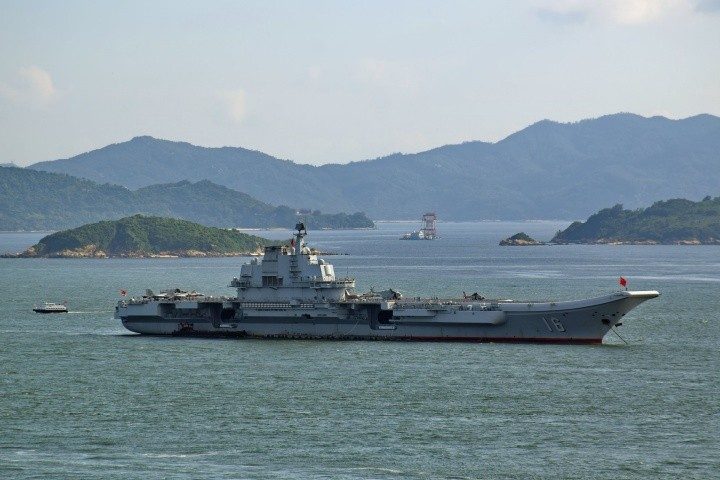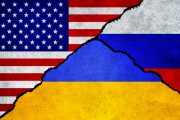
Former U.S. Marine Corps pilot Daniel Duggan has been arrested in Australia, where he is now a naturalized citizen, after being accused of breaching U.S. arms-control law by training Chinese military pilots to land on aircraft carriers, an indictment unsealed by a U.S. court said.
“An individual was arrested on 21 October 2022 pursuant to a request from the United States of America for their provisional arrest,” a spokesman for the Australian attorney general’s office declared in a written statement to Reuters. “As the matter is before the courts, it would not be appropriate to comment further.”
The 2017 indictment indicated that “Duggan provided military training to PRC [People’s Republic of China] pilots” via a South African flight school on three occasions in 2010 and 2012.
The document mentioned unnamed accomplices, including one South African and one British national, who were executives of “a test flying academy based in South Africa with a presence in the PRC,” and as well as a Chinese national who obtained military information for the Chinese military.
In October this year, Australian police provisionally arrested Duggan in the remote town of Orange at the request of the U.S. government, pending a probable extradition request.
An aviation source told Reuters that the FBI sought Duggan because of his work in China. Duggan’s lawyer, Dennis Miralis of Australian law firm Nyman Gibson Miralis, failed to immediately respond to a request for comment on the indictment.
Miralis previously remarked that Duggan denies violating any law, and is an Australian citizen who had renounced his U.S. citizenship.
The District of Columbia court earlier unsealed the indictment and a U.S. warrant for Duggan.
Based on the indictment, Duggan was allegedly approached directly by the unnamed Chinese national to offer services to a Chinese state-owned company, including evaluations of Chinese military pilot trainees, testing of naval aviation-related equipment, and instruction on techniques linked to landing aircraft on aircraft carriers.
Duggan did not apply for approval from the U.S. government to provide military training to China, although the State Department had told him by email in 2008 that such authorization was required to train a foreign air force, it said.
Furthermore, the indictment alleges he traveled regularly between Australia, the United States, China, and South Africa between 2009 and 2012, while he was a U.S. citizen and then an Australian citizen.
Duggan’s alleged breach of an arms embargo imposed on China by the United States also included providing aviation services in China in 2010, and offering an evaluation of China’s aircraft-carrier training, it said.
The indictment alleges the Chinese national brokered a deal between the South African flight school and a Chinese state-owned enterprise to conduct aircraft-carrier landing training to Chinese military pilots in South Africa and China.
For the training, a T-2 Buckeye aircraft was purchased from a U.S. aircraft dealer. False information was provided, hence the U.S. government issued an export license, the indictment continued.
Duggan has been slapped with four charges, including conspiracy to defraud the United States by conspiracy to illegally export defense services to China, conspiracy to launder money, and two counts of breaching the arms export control act and international traffic in arms regulations.
Duggan is currently being held in custody in Sydney and his case will return to a Sydney court on Friday.
A spokesperson said that the Australian attorney general’s department “does not comment on extradition matters until after the person has been brought before the court pursuant to that extradition request.”
Duggan moved to Australia in 2002 after a decade in the U.S. Marines, later moving to Beijing in 2014 where he worked as an aviation consultant. He returned to Australia from China weeks before he was arrested, according to his lawyer.
According to reports from Reuters, Duggan previously shared a Beijing address with a Chinese businessman, Su Bin. Su was arrested in Canada in July 2014 and sentenced to prison in the United States two years later after being found guilty in a high-profile hacking case involving the theft of U.S. military aircraft designs.
Under Australia’s extradition treaty with the United States, the U.S. government will have 60 days to submit an extradition request. The treaty permits Australian citizens to be extradited.
Duggan’s arrest came the same week Britain warned dozens of former military pilots to stop working in China or face prosecution on national-security grounds under new laws.
”China has recruited as many as 30 retired British military pilots, including some who flew sophisticated fighter jets, to train pilots in the People’s Liberation Army, Britain’s Defense Ministry said.
The U.K.’s Ministry of Defense posted on Twitter that the British pilots were told they risked prosecution under the Official Secrets Act, and a national security bill would offer other paths to prosecution.
A senior official remarked that the ministry was concerned that the practice could undermine British national security.
The U.K. said it was cooperating with allies to try to halt the practice, which the official said dated to before the Covid-19 outbreak but had increased in recent months. The recruited British pilots, the senior official disclosed, included former members of the Royal Air Force and other branches of the armed forces.
U.K. media reports have zoomed in on the Test Flying Academy of South Africa (TFASA), which responded in a statement on its website insisting it “strongly believes that its actions, and those of its employees, do not contravene any UK laws.”
In light of Britain’s announcement, Australia is also investigating reports that some of its former fighter pilots have been contracted to work in China. In November, Australia announced a plan to unveil a study on the obligations former Defense Force personnel have to safeguard state secrets.
Defense Minister Richard Marles said on Wednesday the intelligence agencies and Australian Federal Police were “investigating a number of cases” in Australia, and declared an investigation into the policies and procedures governing Australian Defense Force personnel. He had asked the Defense Ministry to pursue claims that former Australian military pilots had been recruited to join a South African flight school that operated in China.
“For those who do come into possession of our nation’s secrets either through service in the Australian Defence Force or service in any other part of the Commonwealth, there is an enduring obligation to maintain those secrets,” Marles told a media conference.
“It’s important that we have the most robust framework possible that is in place to protect Australia’s information and protect our secrets,” he said.
“I would be deeply shocked and disturbed to hear that there were personnel who were being lured by a pay cheque from a foreign state above serving their own country.”
Meanwhile, New Zealand’s defense minister has also sought advice from the NZ Defense Force on whether it needs to enforce laws to prevent former New Zealand military pilots traveling overseas to train pilots of foreign militaries, a spokeswoman from the prime minister’s office revealed.
TFASA did not immediately respond to a Reuters request for comment on whether it had contracted Australian pilots to work in China.
In an undated advertisement, TFASA said it was looking for a number of fixed-wing and helicopter test pilot instructors to work at an undisclosed location in “Far East Asia” with an initial contract commitment of four years.
The listed job requirements included having graduated from military test flight schools in the United States or the U.K.
A look at TFASA’s website reveals that it operates a flight school for Chinese airline pilots in South Africa as a joint venture with one of China’s largest state-owned aeronautic companies, Avic.


